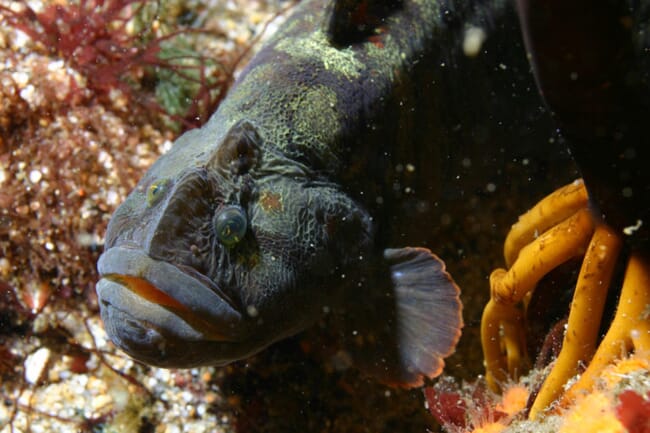So claim scientists at the University of California, Irvine who have been studying the genome of the monkeyface prickleback (Cebidichthys violaceus), as they believe it could offer new possibilities for humans to obtain dietary protein despite the challenges of climate change.

© NOAA
The authors of the paper explain that monkeyface prickleback is amongst the five percent of fish species that are vegetarian, nourishing themselves only with the specialized algae in the tidepools where they live.
This characteristic captured the attention of Donovan German, the university’s associate professor of ecology and evolutionary biology, researcher Joseph Heras and colleagues. They wanted to figure out how the species survives on a food source containing a low level of lipids, which are essential for all living beings. By sequencing and assembling a high-quality genome for the fish, the team discovered the secret.
A lesson in lipid digestion
“We found that the monkeyface prickleback’s digestive system is excellent at breaking down starch, which we anticipated,” said German. “But we also learned it has adapted to be very efficient at breaking down lipids, even though lipids comprise just five percent of the algae’s composition. It is a compelling example of what we call ‘digestive specialization’ in the genome.”
With climate change making the raising of livestock less sustainable, the discovery holds promise for developing new sources of protein for human consumption. In particular, it could be important for aquaculture, which is a possible alternative but is contending with the issue of what to feed the fish being raised.
“Using plant-based food ingredients reduces pollution and costs less,” said Heras, the paper’s first author. “However, most aquaculture fish are carnivores and can’t handle plant lipids. Sequencing this genome has provided us a better understanding of what types of genes are necessary for breaking down plant material. If we scan additional fish genomes, we may find omnivorous fish with the right genes that could provide new candidates for sustainable aquaculture.”
In the past decade the species has become a culinary delicacy, appearing on plates in a number of high-end restaurants.
“The taste is actually delicate and mild,” said German.
Further information
Their paper appears in Proceedings of the Royal Society B and can be accessed here.
